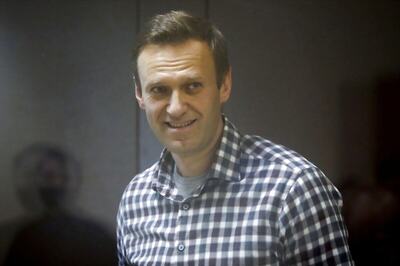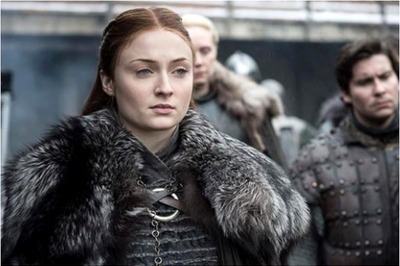
views
Washington: The US House became the engine of Democratic intentions to redirect the nation, but President Bush struck a businesslike tone on Wednesday, making plans to call the woman poised to become speaker of a Democratic House majority.
The shift in power in Tuesday's US midterm election foretells certain conflict between Bush and a Congress that he has counted on to do his bidding since he took office nearly six years ago.
"The president's not the kind of guy who is going to be somber about things," said press secretary Tony Snow. But he added: "They have not gone the way he would have liked."
Bush, unaccustomed to political defeat, planned a morning phone call to Democratic minority leader Nancy Pelosi and made plans to give his take on the midterm election results at an afternoon news conference.
The president watched the results in the White House residence, where Snow described the mood as "businesslike."
Asked if the president was surprised that the House was headed for Democratic control, Snow said it wasn't "a slap-on-the-forehead kind of shock."
Determined to stave off a Democratic-controlled Congress, Bush raised millions of dollars, flew thousands of miles, shook hands, kissed babies, praised fellow Republicans and blasted Democrats - in private at first, lately before cheering crowds.
From huge hotel ballrooms in Washington to luxury homes across the country, Bush collected more than $193 million for the GOP at about 90 fundraisers over 20 months. Switching to traditional campaign rallies only at the last, he raced through 15 cities in 11 days.
Despite Republican fears and Democratic hopes that Election Day would place the House, the Senate and a majority of governors' mansions in Democratic hands, Bush remained relentlessly optimistic.
"We've had quite a week," he said in Texas. "We're closing strong."
Tuesday morning in his adopted hometown of Crawford, Bush cheerfully voted in the local firehouse. Outside, an "I voted" sticker on his jacket, he put aside the partisan attacks and appealed to Americans to vote, whichever party they favored.
The president then returned to the White House to await the results so pivotal to the last two years of his presidency.
He was joined for dinner by political strategist Karl Rove, GOP chairman Ken Mehlman, White House chief of staff Josh Bolten, former Commerce Secretary Don Evans and Brad Freeman, a California venture capitalist and top Bush fundraiser.
A Capitol Hill even half dominated by Democrats would erect a bedeviling barrier to the remaining items on his presidential agenda. It would also raise the specter of possible investigations into his pre-Iraq war use of intelligence, post-Sept. 11 expansion of executive power and other issues.
In ending 12 years of Republican control of the lower chamber of Congress, voters ushered in an era of divided government, confrontation and less predictably conservative lawmaking.
House Democrats have pledged to examine the administration's conduct on a variety of fronts, including the war in Iraq, surveillance of terrorist suspects without court warrants and the enforcement of federal regulations.
Democrats also have drawn up an agenda of domestic issues they want to bring to a vote within the first 100 hours after the new Congress convenes next year.
PAGE_BREAK
Among them are an increase in the minimum wage, adoption of the 9/11 anti-terrorism recommendations and competition by Medicare for cheaper drug prices.
''We will follow an agenda to lift up our people and America together,'' said Rep. Steny Hoyer of Maryland, the second ranking Democratic leader in the House.
On Bush’s trail
From a famous family of politicians, Bush first entered the electoral fray on his own behalf in 1978 when he ran, and lost, for Congress from West Texas.
He has not lost since, not for governor of Texas in 1994 and again in 1998, not in two runs for the White House, and not in 2002, when - with his help - his party bucked historical trends and not only kept but expanded its majorities in the House and the Senate.
For this year's midterm elections, Bush headlined at least as many political events as before the voting in 2002. But the nature of his effort was much different.
With the war growing unpopular and his approval ratings 25 points lower than four years ago, Bush kept his political appearances more out of the public eye.
When the public rallies did start, two months later than in the 2002 election cycle, they were exclusively in GOP-friendly states he won in 2004, most in small or rural communities less likely to have a boisterous anti-Bush presence.
He didn't stay away from contested races. But by jetting into the reddest of states, such as Nebraska, Kansas and Montana, the president was playing defense. His assignment was not to lure undecideds, but to coax a dispirited GOP base to turn out.
White House political strategists said the president helped.
But some in Bush's party made a point of distancing themselves from his policies, even while they eagerly accepted his behind-closed-doors fundraising help. Others said "No, thank you" to any presidential involvement.
PAGE_BREAK
What happens now
Control of the Senate remained in doubt late Tuesday. The outcome in three states - Missouri, Montana and Virginia - could determine whether voters chose government gridlock or whether they gave Democrats a chance to legislate.
The Democratic victories in House races seem to ensure that Rep. Nancy Pelosi, leader of the House Democrats, will become the first female speaker in U.S. history. The change in control also places some of the House's longest serving liberals in charge of key committees. Still, it will be difficult for Democrats to advance a left-of-center agenda. Several Democrats elected Tuesday are ideologically more conservative than Pelosi and other party veterans and could help tug the party to the center.
What is more, the same Democrats who beat Republicans Tuesday will be back seeking re-election in 2008 in districts where a liberal voting record would do more harm than good. Recognising that, House Democratic leaders have promoted a platform designed to win widespread backing from Democrats and attract Republican support as well.
''Our most important thing to is to work in a bipartisan fashion to get this country moving again,'' Rep. Rahm Emanuel of Illinois, the chairman of the House Democrat's campaign committee, said on MSNBC.
Being in charge will also shine a harsher light on Democratic divisions on a number of issues, including from what to do about Iraq, increasing domestic spending and maintaining current tax rates.
Democrats have no unified stance on the war except to uniformly oppose Bush's strategy. A number of House Democrats, and many of the voters who turned out to vote on Tuesday, want the United States to pull out of Iraq immediately. In the House, they are led by Rep. John Murtha of Pennsylvania, a former Marine and defense hawk who initially supported the war.
Other Democrats want a withdrawal tied more to performance by the Iraqis than to set deadlines. In the House, the main advocate of that approach is Rep. Ike Skelton of Missouri, in line to become the new chairman of the Armed Services Committee.




















Comments
0 comment